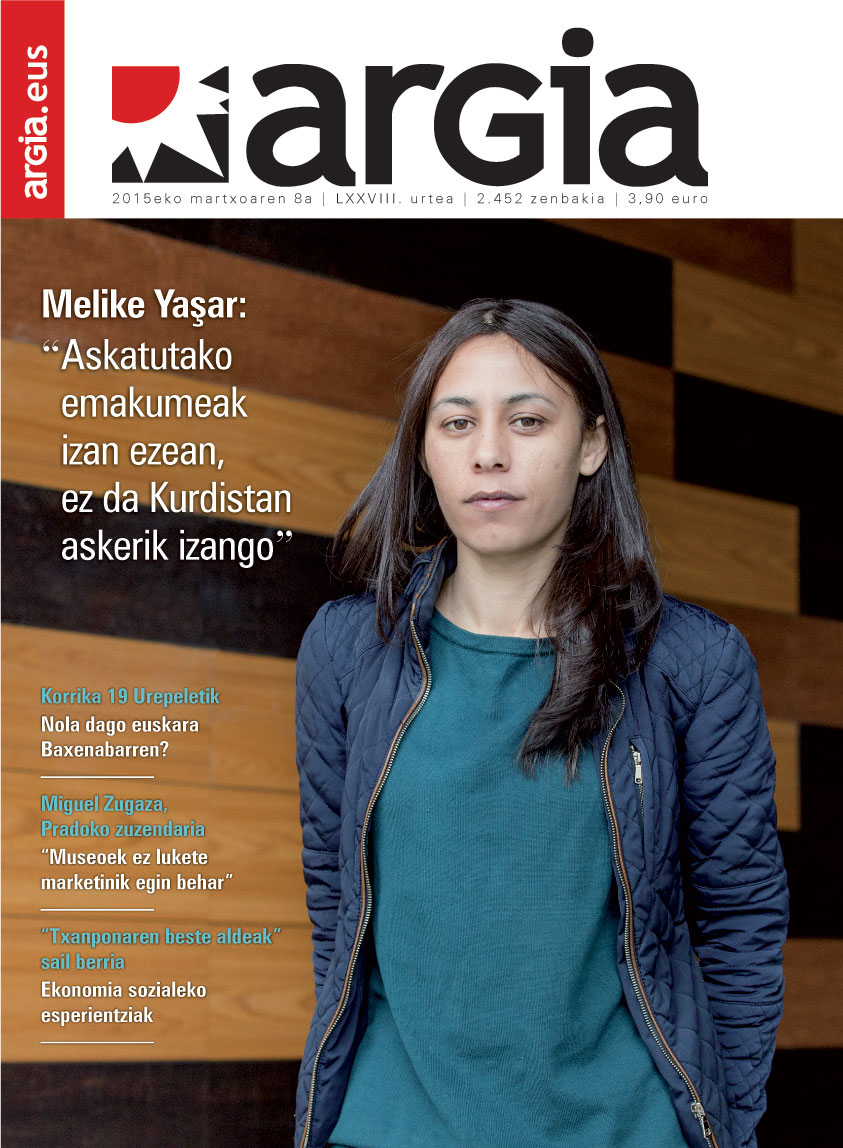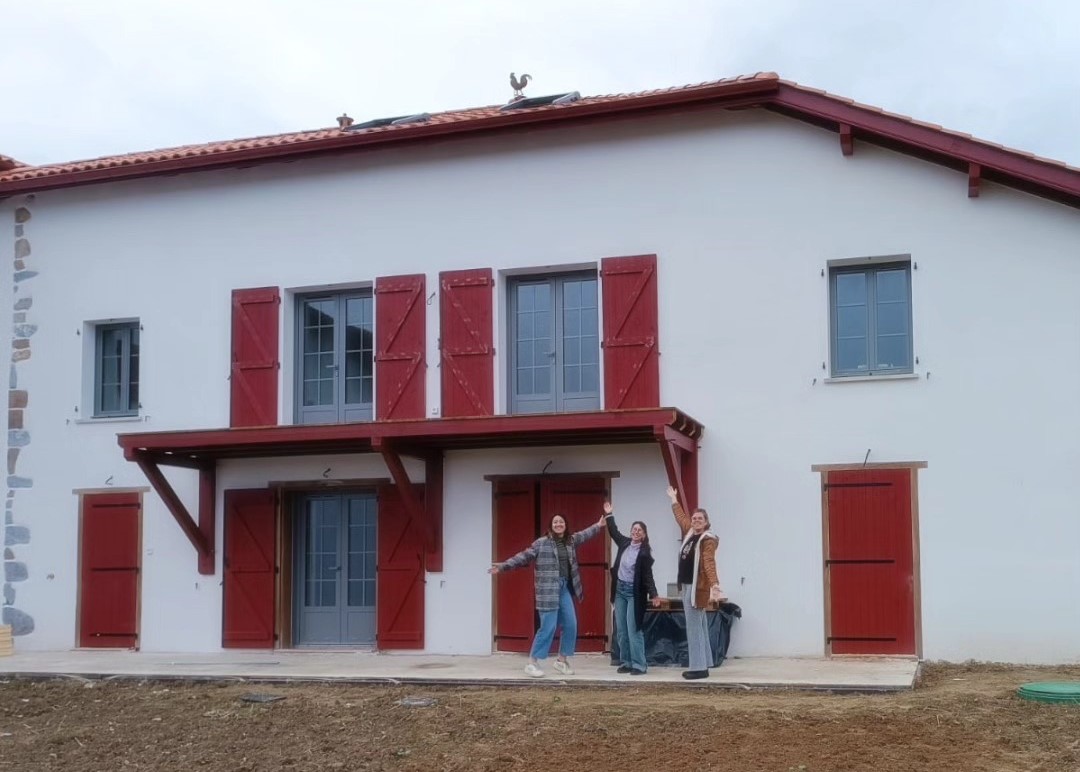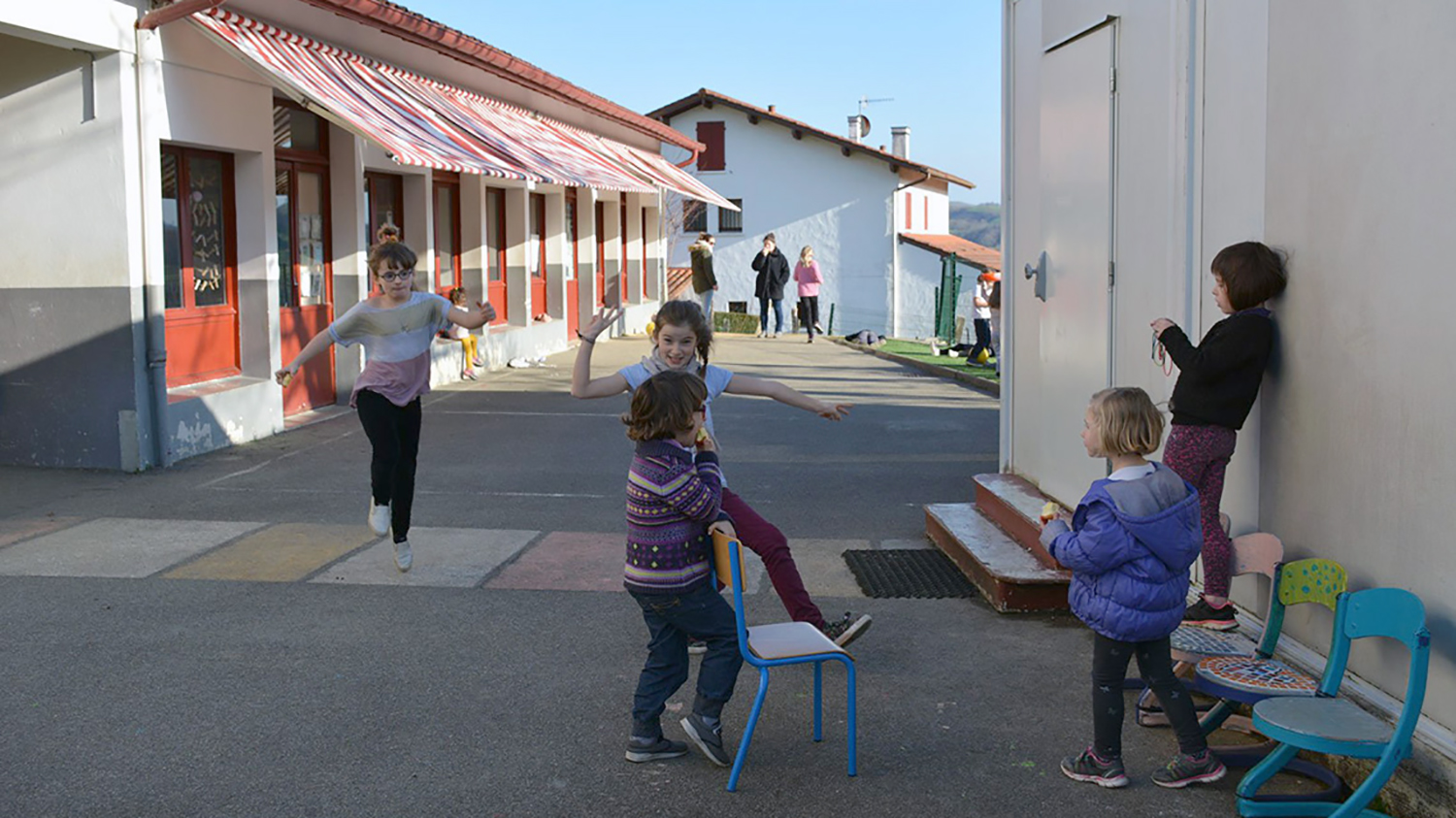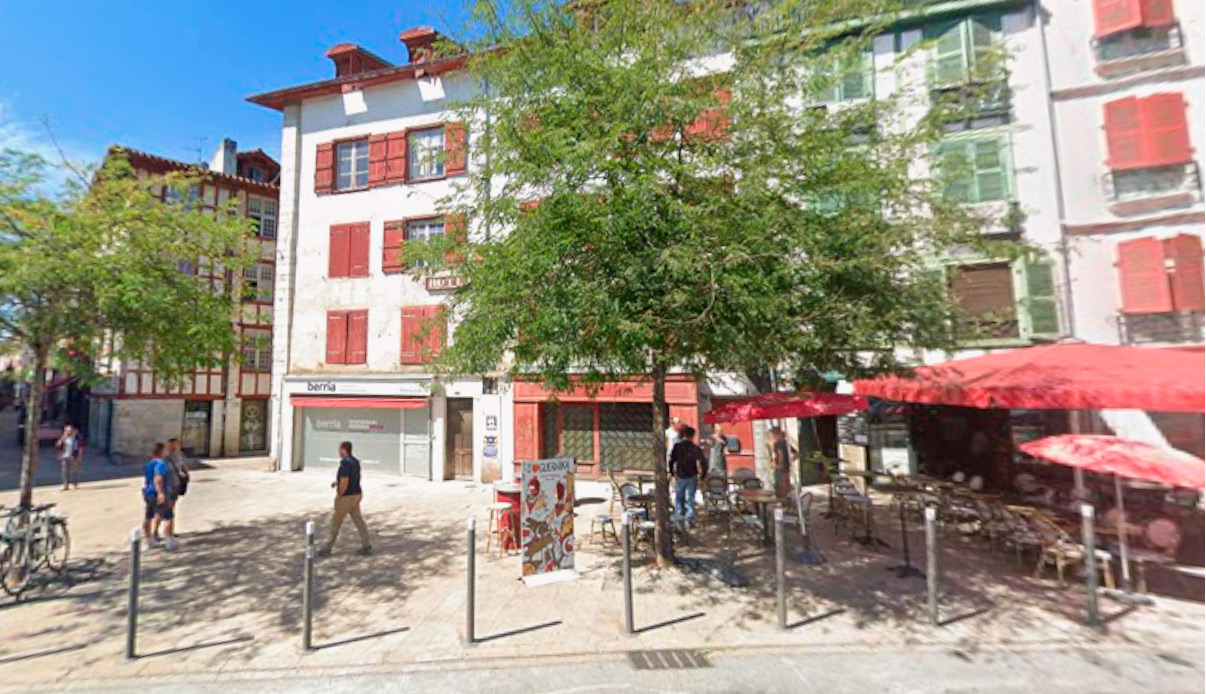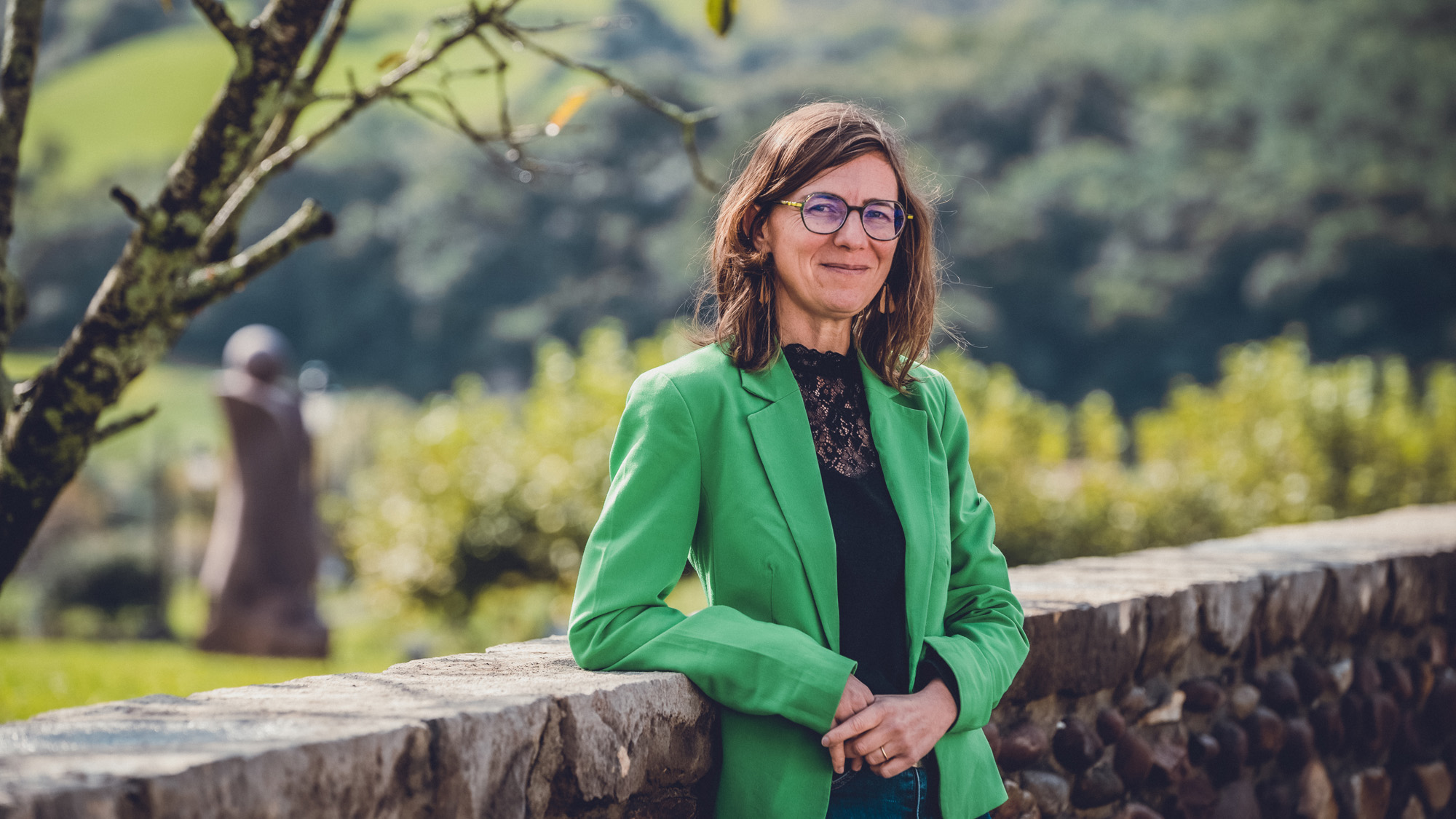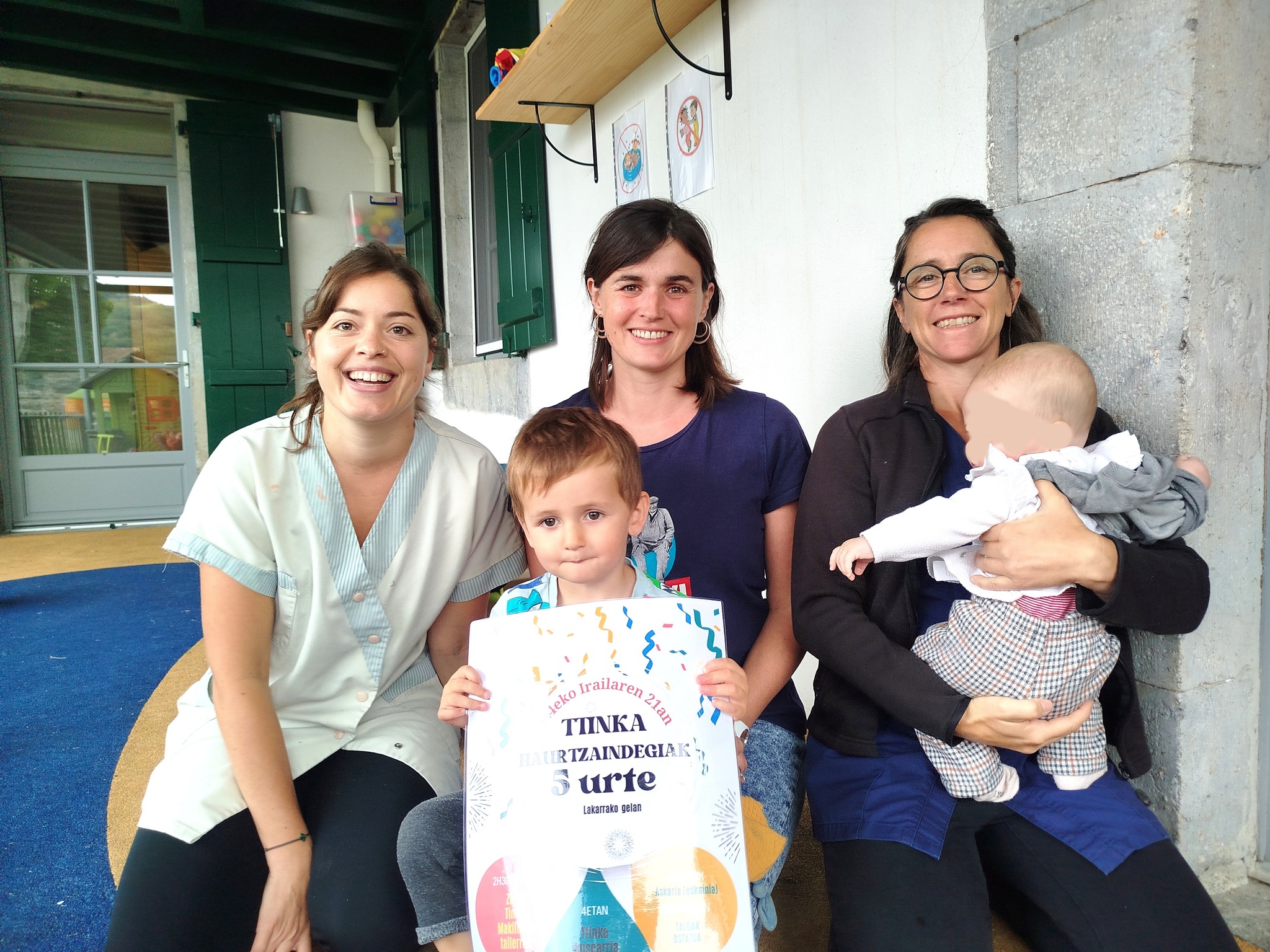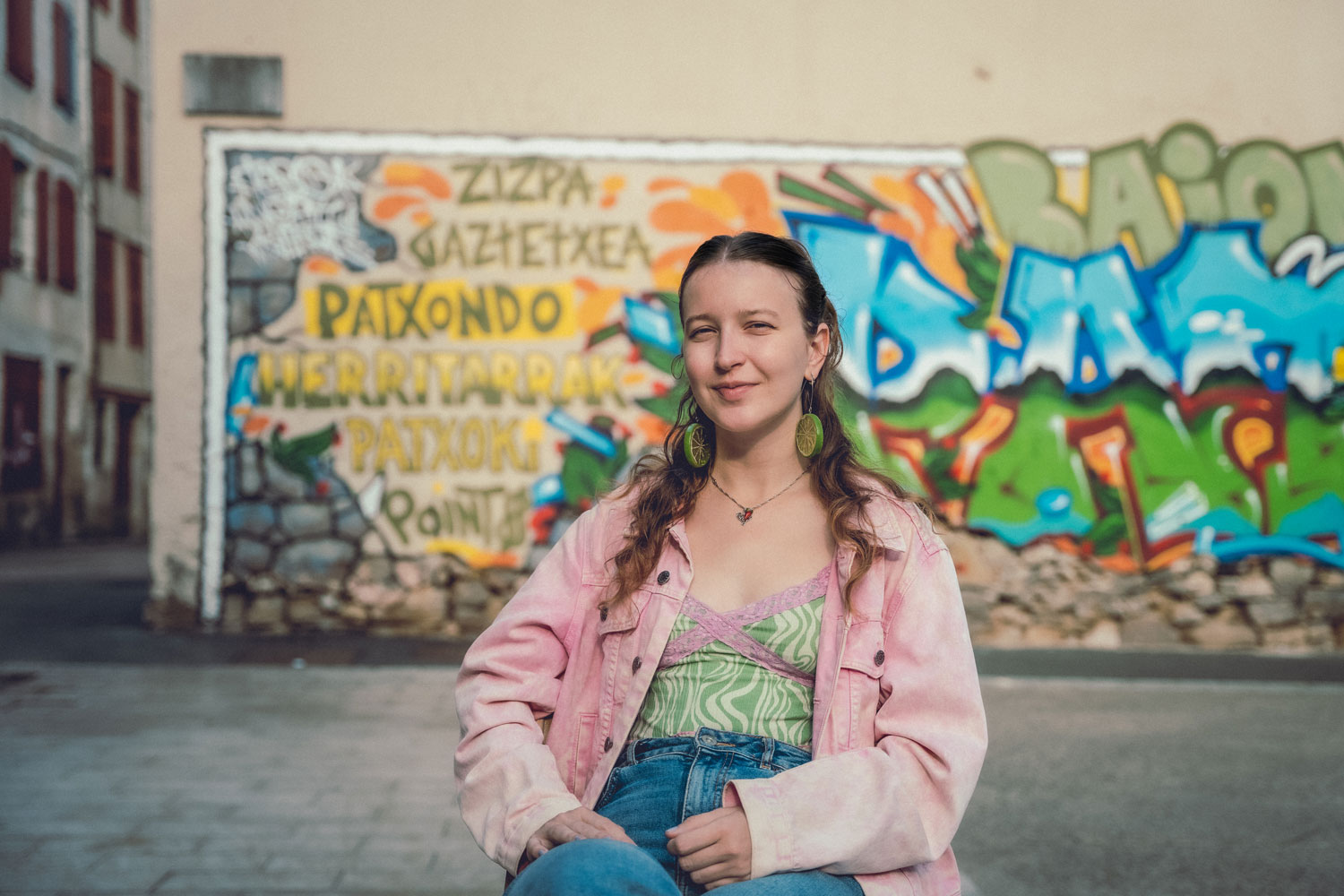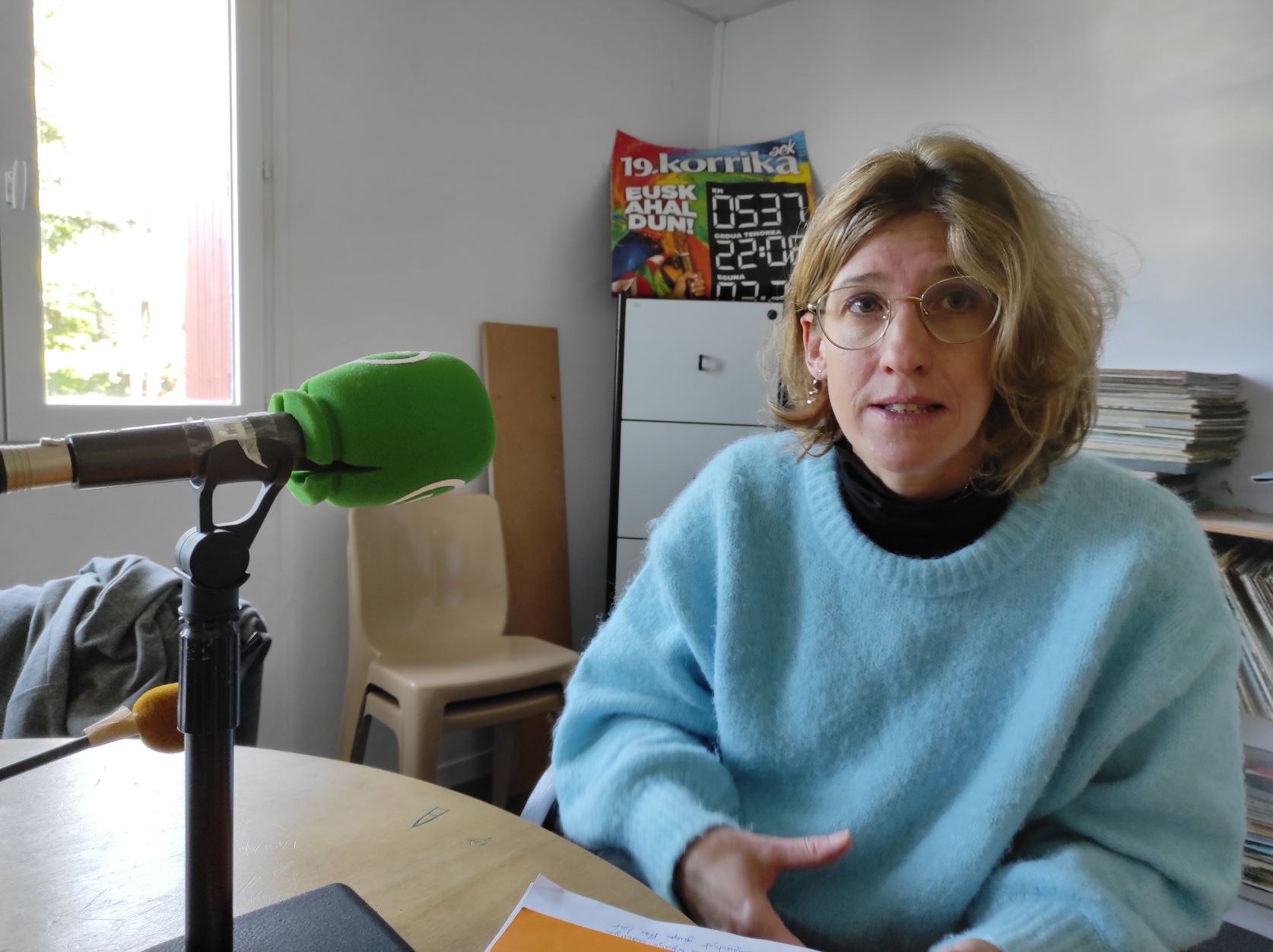More than an attitude contrary to language, pusilleness predominates.
- 19. Korrika is already underway: it will start on 19 this month in Urepel and end in Bilbao on 29. We've been in the Urepele area. From there we went out to get to know the Basque country in the area. We have talked about the situation of the Basque people in Baenabar in general and about the situation in the Baigorri valley in particular. Xole Aire de Urepel and Mattin Bacho de Arbe will participate in the tertulia.
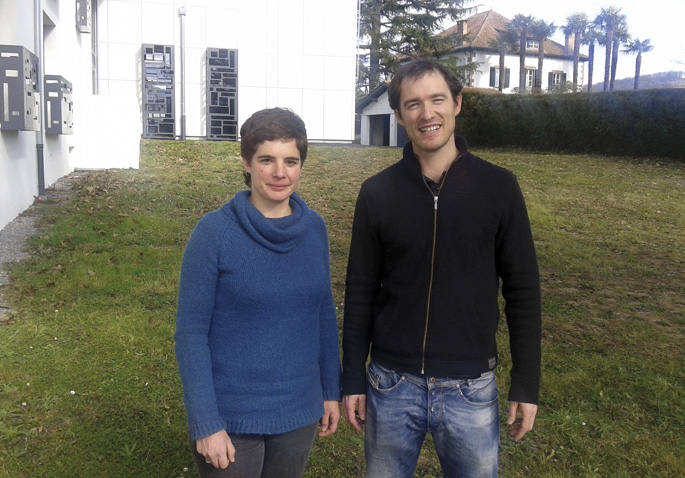
In Baja Navarra there are three public schools: Amikuze, Garazi-Baigorri and Iholdi-Oztibarre. By law it is not joint schools, but joint work. For example, in 2007 it was agreed to create a position of Basque technician. The employee is Mattin Bacho: “My post is not permanent, the agreement is renewed every three years.” He was born in 1980 in Bacho Arberatz. Fathers and mothers and their generations speak Basque fluently: “The transmission of Amikuze’s Basque was suddenly interrupted, as in other counties. The uniqueness of the region is to be on the border”.
Xole Aire is a urepeld born in 1973 and nieta from the bertsolari Xalbador. He has taught at Night Schools (AEK) and at Ikastolas (SEASKA). However, he decided to plant himself in cultivation in his native town, Urepel.
The starting point of the Korrika is Urepele
The request for the race to leave Urepel (316 inhabitants) was made by the Basque people in the area. It's never been there. “Well, it should happen,” they thought. Xole Aire can't believe us: “However, there are a thousand reasons for it to happen. One: The Baigorri Valley is very Euskaldun, but it is losing the Basque, it needs a shake.” Curiously, the Korrika has never passed through the Baigorri Valley at any time: “We have gone to Roncesvalles or to Garazi. It is exciting to pass from hand to hand ten days and at night the witness, symbolically it is terrible. I run with a lot of emotion and this time I will do it with more emotion.”
It has not been easy to leave Urepel. The AEK members of the Valley made the request and replied: “Running around Urepel?” Eugi is far away (the urepeldarras have gone to participate in the Korrika; to the south), the main AEK leaders thought the environment was empty: “But we live here, we are Basques,” the local replied. The arguments were better prepared and the request renewed. The reasons are as follows: 1. AEK does almost all the courses in Urepel. 2nd Be a town of Xalbador. 3. Creating bilingual schools. 4. After the ikastolas and bilingual schools the nursery has been created. 5. Creation of the Adur Association, which promotes social issues, culture and Euskera.
Adur, at least, asked for the Korrika to pass through Urepel: “We thought they were not going to miss the two options. And behold, they decided to leave Urepel.”
Is Baigorri the most Basque?
Talking about the situation of the Basque people in Baigorri is inevitable. Many say that Baigorri is the most Euskaldun region, but the Basque is not “safe” or in Urepel. According to Baco: “The situation is not the same in the whole of Baja Navarra, there are many differences between cantons and regions. Baigorri and Oztibarre are similar. According to Garazi and Amikuze, and it is clear that capitals are more Castilan-speaking. In the villages that have seen the Basque country in the countryside, more awareness has been awakened. The Basque technician believes that the difference lies in the knowledge and use of language. For example, Baigorri is more Euskaldun and Amikuze more Castilian speaking, but in terms of consciousness, in Baigorri they are no more aware of it. They are more Euskaldunes, but not more Euskaltzales. Baco lives the Korrika in a kind of contradiction: “At first I don’t feel special, but when running I also get excited. Seeing so many people and claiming slogans gives me a lot of strength. Do I have a concern, whether it's theater or a one-day effort? I have that feeling.” Does Korrika serve to whiten consciousness?
In any event, both sides see the need for Korrika. Baco gives us an example of this: “I have played football and from before and after the Korrika people use Euskera more. Korrika is a stimulus to raise people's awareness. Bring new people to the Basque world.”
The key is the recovery of consciousness.
Three years ago, in order to imagine the future, a collective reflection was carried out Aldude 2050 in the area of Urepele: “The three animators were Castellanoparlantes. They made us speak for groups: social, economic and cultural issues. I, intentionally, have not joined the language group. ‘Let’s not be Euskaltzales always in the same place,’ I thought. I was surprised that young people who are not Basque were integrated into the language group. Some are not Basque, but they've realized they're losing Basque. One of them showed great concern. I have realized that the new generations must be given confidence, they have a kind of responsibility.”
Have the nationalists been demanding in the face of the grave situation in the Basque Country? The Urepelda says: “Maybe yes, but it’s understandable, because Euskaldunization was in the field. Xalbador said: ‘Here is a mother murdered by her children.’ The first time I read that, I cried. Our mother tongue is being lost by us. We had to do a hard time and now we have to trust the new generations.” Bacho is Arbe's.
In the Houses of the People in Basque
Are City Hall sessions held in Euskera? “In Urepel, yes!” says Aire. “That’s very interesting,” Baco insisted. It is incredible that the popular council should be made in Basque and naturally. Bacho is working for this purpose, among others, with the axuant Curutcharry of Baigorri and with the head of Euskera: “As some of the member councils are Castellanoparlantes, the meetings are held in French. Even in Basque, they are translated. But the meeting is strange to them and they leave the Basque soon.” According to Bacho, to begin with, it is a lack of courage. “In Hegoalde that is overcome. In the North it has not yet been found. There are no guarantees to do so in Basque. There are no translation rules.” In the houses of Donibane Garazi or Baigorri is made in French. The problem is not that there is no translation system either: “Although the majority is Euskaldun, the question of speaking in Euskera does not stop. A committee is not set up to reflect on this. Politicians can take that step. It’s time.”
The institution claimed by the Basques can be a structure of Herri Elkargoa. The Colegio de los Pueblos de la Baja Navarra could help to make its way. Bacho started working and interviewed 70 acusados.Como example, spoke to the mayor of Uharte Garazi: “I explained to him in Basque what we want to do, but he answered me in French.” Despite being an Euskaldun, I expected the mayor to speak in French: “The mayor gave me the peak. To say that we didn't give the same Basque. What do I ‘do not give the same Basque? We will understand each other’, I told him.” It speaks of a point of despair: “I have the hand of my father, of Oztibar in part. I'm from Amikuze and I work in Garazi, in Donazahar. If I do not give it at your fingertips, what time?”
The rigour remains low, the courage of the parents of our interlocutors is low. Euskaltzales live a better time, but it is not easy either, they have to learn to overcome new situations: “The Basque is not an obstacle, but a mentality to do so in Spanish. Those who, without entering into partisanship, have a disastrous or large power – according to the interpretation – must use the Basque country to promote the Basque country,” both say. If politicians speak French, citizens take their voice as their model: “However, they are taking into account the ideas of the Abertzales, who say that those who are not nationalists also have to save the Basque country. There was a time when this was unthinkable. Of course, they say church, then they speak in Basque. To what extent? In the ten years that have come it will be seen if the main politicians take steps from words to execution,” says Aire.
“Is there a politician who is against the Basque Country?” he asks: “Less and less, but that doesn’t mean they’re in favour. Seeing what the Basque country is, they just have to say ‘I am not against’.” Bacho says: "As important as discussing whether politicians are for or against, it is knowing the attitude of politicians who are reluctant. It is essential to ask specific questions. For example, if a committee of Herri Elkargoa decided to speak in Basque, the means should be put in place to involve the Castilian and Spanish speakers. However, the electorate makes policy in French, because they are raped so that it is done in the first place by law. The question is: “Are you willing to speak in Basque at times?” However, in cases where it is possible, because they know Basque, we do not know if they are, we have not yet taken that step. The Basque Country to strengthen the Basque country is there.”
SEASKA, AEK, Euskal Irratiak
Without SEASKA, AEK or Euska Irratia, the Basque would not be in the places where it is located: “When we were children, those of our parents’ generation thought: ‘The Basque is dead, soon, it must be annoyed’. They created a crib and were considered crazy. It’s not because of their praise, they wouldn’t want it either, but they haven’t been given enough recognition.” Xole Aire gives us an example of that time: “We, brothers, understood that speaking in Basque was to be linked to politics. When we went to Baigorri College, it was hard. We entered the room and some started playing the melodies.” They went home and asked, "What do we do wrong?" Answer: “Some unite the Basque country with the armed struggle.” The political situation was then extremely painful. The main concern of Aire has been not to have to say “speak in Basque!” to his daughters. They speak in Basque naturally and that is a great achievement for their joy. Nowadays the Basque Country is not linked to politics, or not so much. That celery is won.
Mattin Bacho talks about AEK's work. Here is his conception of the people who are learning Euskera: “Euskaldunberris have no limits, if they don’t know a word, they will enlist it in the dictionary or ask. On the contrary, many Euskaldunes give Euskera, but they use the same usual phrases, and they learn nothing by introducing something new into language. I see here the need for further reflection”.
If the surveys are correct, there are 50,000 Euskaldunes over the age of 16 in Iparralde: “But they don’t use it. Speaking in Basque is not considered as the Euskaldunberris, that is, as a kind of conquest. Then they say ‘I don’t know how to say’. Vascospeakers need the spirit of the conquerors,” says Mattin Baco. Xole Aire joins this concept: “There are those who dominate the Basque country, but they listen to the children who come from the ikastola and say ‘that is not by hand, it is not by our hand’”.
Is it an excuse or a pretext? questionnaires: “They cannot overcome the situation, they do not want to update the Basque Country.”

Nafarroa Beherean, Aiherrako 'Beltzegitea' etxean kokatuko da Eguzkilore haurtzain-etxe berria. Euskara, natura eta motrizitate librea oinarri harturik, heldu den apirilean hasiko dira zerbitzua eskaintzen.
The problem of the afrancession of the names of the places of Euskal Herria is not only due to the lack of consideration of the language in the signaling panels, but also to the execution of a decision on the domiciliation that was taken a few years ago.
Ultimately, the... [+]
Larunbatean ospatu dituzte Ttinka mikro haurtzaindegiaren bost urteak Lakarran. Baxe Nafarroko euskara hutsezko egitura bakarra da, Euskararen Erakunde Publikoaren B ziurtagiriduna.
On May 17, five Euskaltzales of Ipar and Hego Euskal Herria performed an action coinciding with the call made by the students of the Bernat Etxepare lyceum to mobilize in favor of the Basque. On the wall of the Baiona Subprefecture, a message was sent to the authorities of the... [+]
“Geldi euskara zapaltzea” lema berriz hartu du Euskal Herrian Euskaraz taldeak larunbatean egin duen prentsaurrekoan. Maiatzaren 17an, esaldi hori Baionako suprefeturan tindatzeaz akusaturik, irailaren 10ean epaituko dute Gorka Roca Torre.
Ikasturte honetan, lehen mailako ehun eskola elebidunetan 5.700 ikaslek ikasiko dute. Bigarren mailan hamasei kolegio eta lau lizeotan 1.600 dira. Zailtasun nagusia aurten ere kolegioan euskararen eta frantsesaren arteko oren parekotasuna erdiestea da.
Start of the summer. EHZ festival hangover (atx, headache). You want to breathe after a charged course. Flush the head. Reconnect key elements. Take some time with family, see old friends again and rest (a little) in the daily struggle. Really? !...
As a family, walk to the... [+]
Ms. Judge of the Bayona Court of Justice dismisses:
In March, I was judged by some Euskaltzales in Baiona for taking part in some of the actions we have taken to denounce the unfair treatment suffered by the Basque authorities in the French state. At the beginning of the trial,... [+]
Maddi Kintanak Baiona, Angelu eta Miarritzeko gazteen euskara aztertu du bere tesian. Hitz berriak sortzen dituzte baina baita hitzak beste hizkuntzetatik hartzen ere, besteak beste, interneten eraginez.









